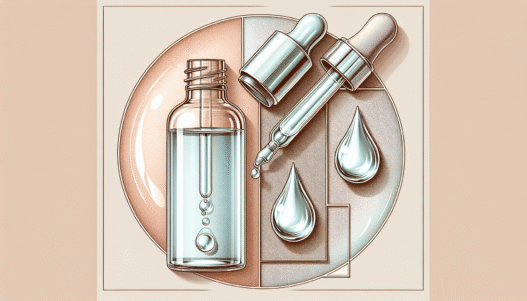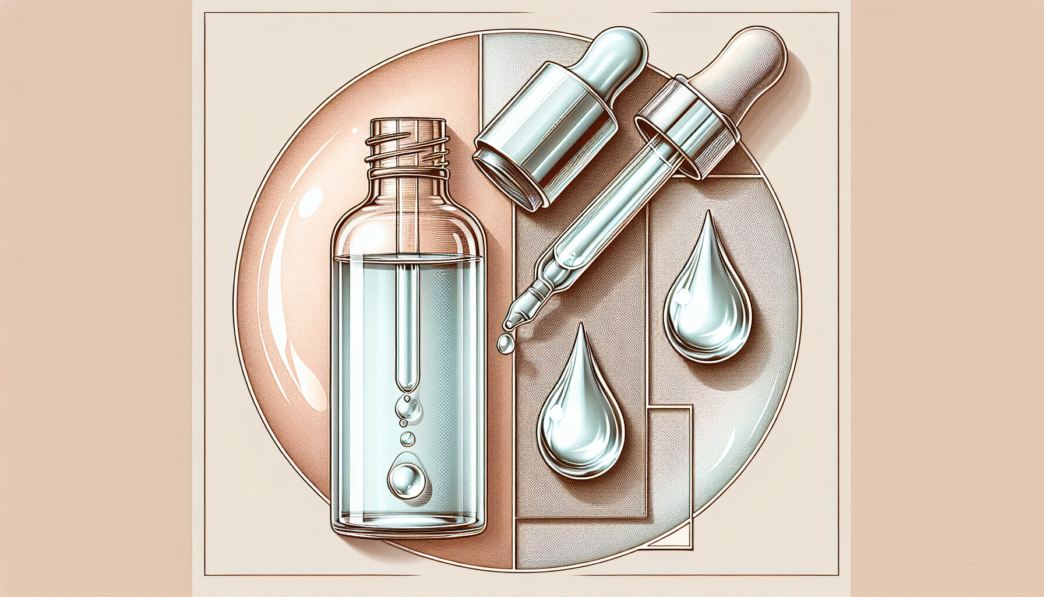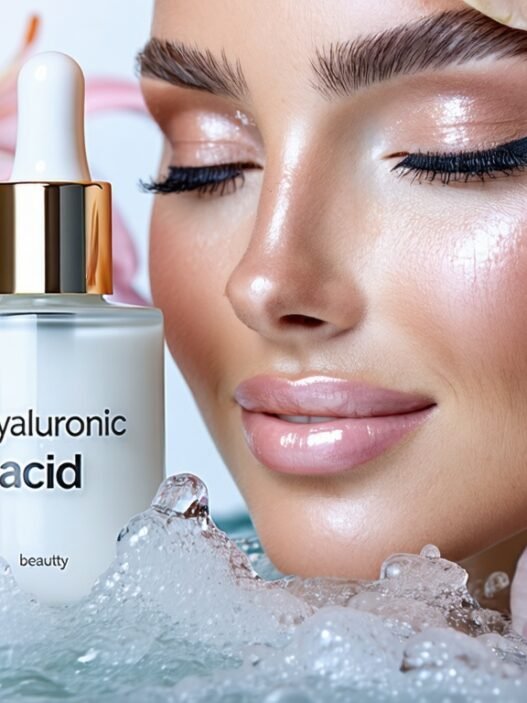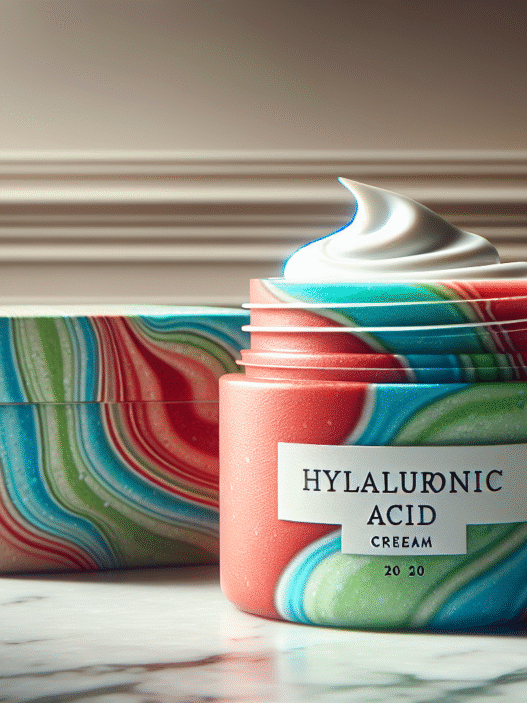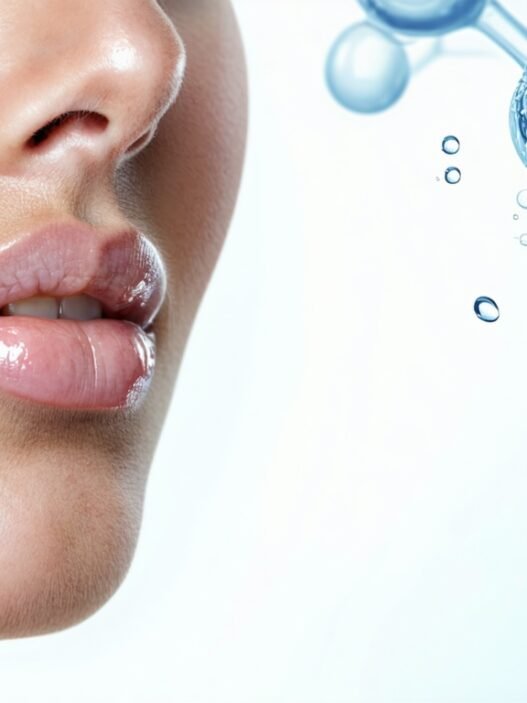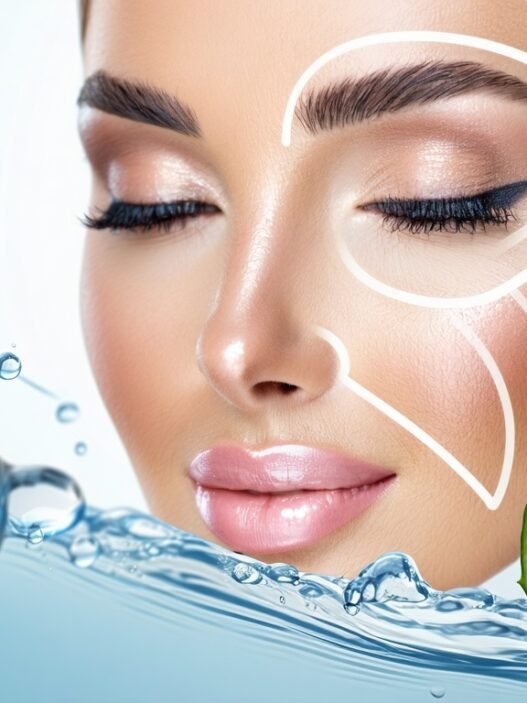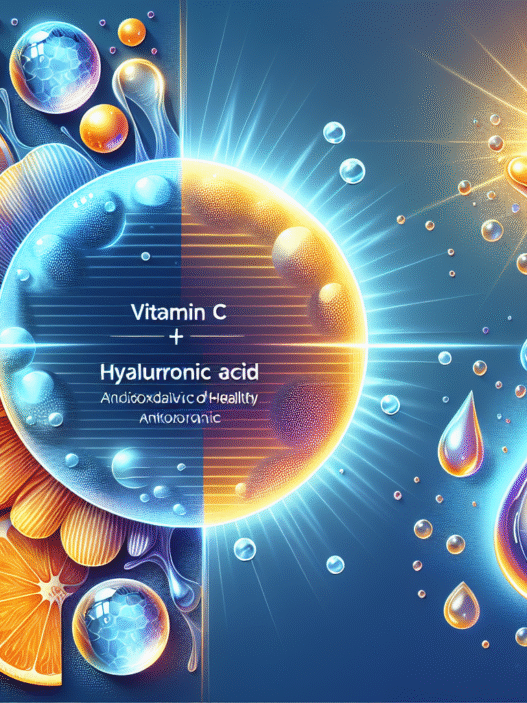Understanding Hyaluronic Acid
Hyaluronic acid (HA) is a naturally occurring substance found in the body’s connective tissues, known for its remarkable hydrating properties. It plays a crucial role in maintaining skin moisture, leading to various benefits, particularly as it relates to aging skin.
Introduction to HA Benefits
The beauty of hyaluronic acid lies in its capability to hold up to 1,000 times its weight in water, making it an exceptional humectant. This means that HA can attract and retain moisture, preventing dehydration and enhancing skin elasticity. As a result, hyaluronic acid is widely celebrated for its role in reducing the appearance of fine lines and wrinkles, helping to create plump, youthful-looking skin. Some key benefits of HA include:
| Benefit | Description |
|---|---|
| Hydration | Attracts and retains moisture in the skin. |
| Wrinkle Reduction | Helps to minimize fine lines and provide a smoother texture. |
| Improved Healing | Aids in wound healing and skin repair. |
| Enhanced Elasticity | Increases skin’s flexibility, making it soft and supple. |
For a deeper exploration of the benefits associated with hyaluronic acid, visit our detailed article on hyaluronic acid benefits.
How HA Works on the Skin
Hyaluronic acid functions primarily as a humectant, effectively binding moisture to the skin’s surface, thus keeping it hydrated and reducing transepidermal water loss (TEWL) Healthline. Upon application, HA attracts water molecules, forming a barrier that helps to maintain hydration levels.
Moreover, as moisture levels increase, the skin’s overall health improves, manifesting in the following ways:
- Increased Brightness: Hydrated skin often appears more radiant and lively.
- Reduced Inflammation: HA has been noted for its anti-inflammatory properties, helping to soothe irritated skin.
- Support for Skin Structure: HA contributes to the skin’s structure, acting as a shock absorber that can protect against environmental stressors Filorga.
For those interested in enhancing their skincare routine, considering products such as hyaluronic acid serum or hyaluronic acid moisturizer can be beneficial in integrating HA into daily routines.
Hyaluronic acid not only acts as a powerful ingredient for hydration but also serves as a foundation for achieving overall skin health and combating visible signs of aging. By understanding how HA works, individuals can make informed choices for their skincare needs.
Efficacy of Hyaluronic Acid
Hyaluronic acid (HA) has gained popularity in the beauty industry for its remarkable benefits for skin hydration and overall health. Several research findings support its efficacy in enhancing skin appearance and facilitating healing processes.
Research Findings on HA
A 2021 study involving 40 participants assessed the effects of topical hyaluronic acid on skin hydration. Results indicated significant improvements after six weeks, with participants noting enhanced skin hydration and reductions in visible signs of aging (Medical News Today). The study underscores HA’s role not just in hydration, but also in the overall improvement of skin texture and elasticity.
Moreover, research highlights that HA helps regulate inflammation and promotes wound healing. It has been shown to prevent infections while moisturizing both minor and severe wounds, indicating its multifunctional role in skin care (Medical News Today).
Benefits for Skin Hydration
Hyaluronic acid is a naturally occurring glycosaminoglycan that provides structure to skin and is known for its exceptional hydrating properties. It functions as a powerful humectant capable of binding up to 1000 times its weight in water, which effectively retains moisture in the skin’s surface, preventing transepidermal water loss (TEWL) (Healthline).
The benefits of HA for skin hydration include:
| Benefit | Description |
|---|---|
| Increased Moisture Content | Helps maintain skin hydration and suppleness. |
| Reduces Fine Lines and Wrinkles | Plumps skin cells with moisture for a youthful look. |
| Enhances Elasticity | Makes skin more flexible and soft. |
Hyaluronic acid enhances skin’s flexibility, making it stretchier and improving overall texture (Cleveland Clinic). This unique ability to deliver moisture leads to visible improvements in skin firmness, hydration, and elasticity, making it a prime ingredient in various hyaluronic acid products, including serums and moisturizers.
For those interested in specific applications, products such as hyaluronic acid serum, hyaluronic acid cream, and hyaluronic acid moisturizer are recommended for integrating into daily skincare routines to maximize hydration and achieve healthier skin.
Hyaluronic Acid for Skin Health
Hyaluronic acid (HA) is becoming increasingly recognized for its significant contributions to skin health. It effectively supports hydration, elasticity, and plays a vital role in the wound healing process.
Skin Hydration and Elasticity
Hyaluronic acid is renowned for its exceptional ability to retain moisture, being able to store approximately 1,000 times its weight in water. This makes it an ideal ingredient for keeping the skin hydrated, which in turn can reduce the appearance of fine lines and wrinkles. When HA is applied topically, it helps to plump skin cells with moisture, giving the skin a healthier and more rejuvenated look.
As a naturally occurring glycosaminoglycan found in connective tissues, hyaluronic acid helps to provide structure to the skin. This structure contributes to skin elasticity and firmness by maintaining adequate moisture levels. When skin is sufficiently hydrated, it appears plumper and more youthful, which is a desirable quality for beauty and skincare enthusiasts.
| Benefit | Effect |
|---|---|
| Hydration | Increases moisture content in the skin |
| Elasticity | Improves skin flexibility and firmness |
| Appearance | Reduces fine lines and wrinkles |
For more information on the benefits of HA, visit our article on hyaluronic acid benefits.
Role in Wound Healing
Beyond hydration, hyaluronic acid plays a critical role in the wound healing process. It acts as a scaffold structure that supports tissue growth and repair, critical for effective healing (Cleveland Clinic). By enhancing the skin’s natural healing capabilities, HA facilitates faster recovery from injuries and promotes healthier skin overall.
Hyaluronic acid’s structure allows it to aid in transporting other essential compounds throughout the body, enhancing the body’s natural repair mechanisms. This makes it a valuable ingredient not only for skincare products but also in medical applications where skin regeneration and repair are paramount.
| Healing Effect | Description |
|---|---|
| Accelerated Healing | Supports tissue growth and repair |
| Moisturizing Effect | Creates an ideal environment for healing |
| Structural Support | Acts as a scaffold for cell growth |
Incorporating hyaluronic acid into a skincare routine can deliver multiple benefits. For skin health, consider using a quality hyaluronic acid serum or hyaluronic acid moisturizer to achieve optimal hydration and support skin regeneration.
Types of Hyaluronic Acid Products
Hyaluronic acid is a versatile ingredient in skin care, with various applications that enhance skin hydration and overall appearance. There are two main types of hyaluronic acid products: topical applications and oral supplements.
Topical Applications of HA
Topical hyaluronic acid is commonly found in serums, creams, and lotions. These products are designed to deliver hydration directly to the skin. A 2022 review highlighted that topical hyaluronic acid is effective for skin aging treatment, particularly after facial or surgical rejuvenation procedures (Medical News Today). It can also aid in wound healing for minor injuries and scars by regulating inflammation and keeping the area moisturized.
Common forms and uses of topical hyaluronic acid include:
| Product Type | Benefits |
|---|---|
| Hyaluronic Acid Serum | Deep hydration and anti-aging effects. |
| Hyaluronic Acid Cream | Moisturizes and improves skin texture. |
| Hyaluronic Acid Moisturizer | Enhances moisture retention and suppleness. |
| Eye Care Products | Reduces puffiness and hydrates the delicate eye area. |
Individuals generally find over-the-counter hyaluronic acid products safe for use, as noted by the Cleveland Clinic. For a deeper dive into specific products, check our article on hyaluronic acid serum and hyaluronic acid cream.
Oral Hyaluronic Acid Supplements
Oral hyaluronic acid supplements have gained popularity due to their potential benefits for skin health. A study in 2023 demonstrated that oral hyaluronic acid improved skin hydration, tone, and epidermal thickness in participants, showing its positive impact on skin health (Medical News Today).
Oral supplements can contribute to various skin benefits, such as:
| Benefit | Description |
|---|---|
| Increased Skin Hydration | Helps maintain moisture levels from within. |
| Improved Skin Tone | Promotes an even complexion. |
| Enhanced Skin Elasticity | Supports the skin’s natural structure. |
Individuals can incorporate oral hyaluronic acid into their beauty routines as part of an overall strategy for skin health. For more information on supplements, you can explore our article on hyaluronic acid supplements.
Using both topical and oral forms of hyaluronic acid can provide comprehensive hydration and enhance skin appearance. Explore the options that best fit personal skincare needs and consider the recommended products to achieve the best results possible.
Using Hyaluronic Acid Safely
When incorporating hyaluronic acid for skin into a beauty regimen, understanding how to use it safely is essential. Here are some safety guidelines for its products and administration methods.
Safety Guidelines for HA Products
Over-the-counter hyaluronic acid serums, creams, lotions, and eye care products are widely considered safe for external use. These products should be applied according to the manufacturer’s instructions. For those considering oral supplementation, hyaluronic acid supplements are also deemed safe for general use, provided they follow recommended dosages.
For prescription hyaluronic acid formulations, such as stronger serums, adhering strictly to the guidelines given by a healthcare provider is necessary. Failure to do so may lead to ineffective results or adverse effects. Below is a summary of safety considerations:
| Type of Product | Safety |
|---|---|
| Over-the-counter HA Serums/Creams | Generally safe for topical application |
| Oral Hyaluronic Acid Supplements | Considered safe if taken as directed |
| Prescription HA Products | Use under healthcare provider supervision |
| HA Injections | Require administration by licensed medical professionals |
Administration of HA Injections
Hyaluronic acid injections are increasingly popular for their ability to enhance skin hydration and reduce wrinkles. These injections should only be performed by licensed medical professionals. Following proper administration techniques helps minimize complications or adverse effects. Individuals seeking treatments should ensure the provider uses sterile techniques and has experience in facial aesthetics.
As with any medical procedure, discussing potential risks and benefits during the consultation will help determine the appropriateness of the treatment. For more insights, you can read about the specific benefits of hyaluronic acid injections.
In summary, using hyaluronic acid products safely can enhance beauty routines and improve skin health. Whether using topical applications, supplements, or injections, being informed about safe practices is key. For ongoing care, consider integrating hyaluronic acid moisturizers and creams into daily skincare routines.
Skin Care with Hyaluronic Acid
Hyaluronic Acid in Beauty Products
Hyaluronic acid (HA) is a popular ingredient in various beauty products, known for its extraordinary ability to retain moisture. Over-the-counter options include serums, creams, lotions, and eye care products, which are considered safe for external use (Cleveland Clinic). When selecting a hyaluronic acid serum, it is essential to consider the concentration, which typically ranges from 0.5% to 2%. Additionally, being mindful of the molecular weight of the hyaluronic acid can significantly impact hydration levels in the skin (Health).
| Product Type | Common Concentration (%) |
|---|---|
| HA Serum | 0.5 – 2 |
| HA Cream | 1 – 3 |
| HA Lotion | 0.5 – 2.5 |
| HA Eye Care Products | 0.5 – 1 |
Hyaluronic acid is well-tolerated by most skin types as it is gentle and not an abrasive or exfoliating acid, making it suitable for a broad audience (NBC News).
Recommendations for HA Usage
To maximize the benefits of hyaluronic acid for skin, consider the following recommendations:
-
Layering: Applying hyaluronic acid on damp skin can enhance moisture absorption. Start with a clean face and apply a few drops of HA serum directly onto the skin before sealing in hydration with a moisturizer.
-
Routine Use: Incorporate hyaluronic acid products into both morning and evening skincare routines. Regular use can improve hydration, elasticity, and overall skin appearance.
-
Complementing Ingredients: Pair hyaluronic acid with other beneficial ingredients such as vitamins C and E for a powerhouse effect on skin rejuvenation and protection from environmental damage.
-
Consultation: If considering oral hyaluronic acid supplements, it is advisable to seek medical advice similar to other supplements.
-
Seek Quality Products: Choose products from reputable brands to ensure the efficacy and safety of the ingredients used.
By incorporating hyaluronic acid into skincare routines and following these recommendations, beauty enthusiasts can take significant steps toward achieving hydrated, youthful, and plump skin. For more information on HA benefits, check out our article on hyaluronic acid benefits.










